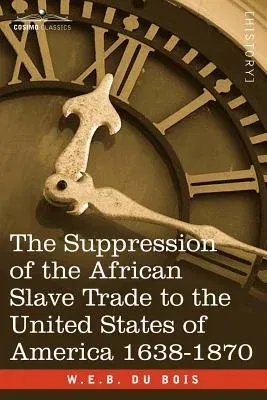W E B Du Bois
(Author)The Suppression of the African Slave Trade to the United States of America 1638-1870Paperback, 15 October 2007

Qty
1
Turbo
Ships in 2 - 3 days
In Stock
Free Delivery
Cash on Delivery
15 Days
Free Returns
Secure Checkout
Print Length
352 pages
Language
English
Publisher
Cosimo Classics
Date Published
15 Oct 2007
ISBN-10
1602068194
ISBN-13
9781602068193
Description
Product Details
Author:
Book Format:
Paperback
Country of Origin:
US
Date Published:
15 October 2007
Dimensions:
22.86 x
15.24 x
2.01 cm
ISBN-10:
1602068194
ISBN-13:
9781602068193
Language:
English
Pages:
352
Publisher:
Weight:
517.09 gm

